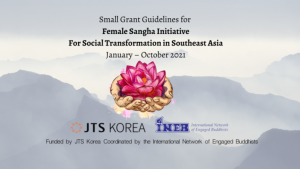
1. Introduction
Through intellectual, moral and spiritual perfection, the Noble Eightfold path leads to happiness, peace and freedom. It is the path that begins with moral conduct and leads to the realization of the ultimate reality. Compared to other religions’ way of attaining liberation, the Noble Eightfold path emphasizes human efforts – your efforts – and not an outside agent such as a god. To practice the Noble Eightfold path, you do not need to have faith because the path lacks any form of worship and prayer activities, and you do not need to believe in rebirth because it is not mentioned in the Noble Eightfold path. Thus, the Noble Eightfold path is highly relevant even for non-believers of god and people who do not believe in rebirth.
The purpose of this essay is to explain the Noble Eightfold path and how it leads to the blissful state. Although two different basic levels often distinguish the Noble Eightfold path’s eight factors (ordinary and noble), the word limit does not allow for such a distinction to be made in this essay.
This essay is divided into five sections and the next section, section two, will discuss moral conduct; section three will discuss mental training; section four will discuss wisdom; and section five will conclude that the Noble Eightfold path is the path that leads to the purity of vision – the blissful state.
2. Moral conduct
In moral conduct, three factors of the Noble Eightfold path are included: right speech, right action and right livelihood. Right speech is to abstain from (i) false speech, i.e. telling lies, (ii) tale-bearing, i.e. talk that will cause persons to lose confidence and create disunity among them, (iii) harsh talk, i.e. language that is used during anger, which is rude, abusive and harsh, and (iv) useless chatter, i.e. gossip and foolish speech.
Buddha taught his monks that there are two things they should do when they have gathered: either they should talk about the Dhamma or they should be silent. Therefore, if you are unsure whether your speech will be better than silence, you better keep the noble silence because if you want to develop wisdom it is important not to waste valuable time on any of these harmful and false speeches. When you follow the right speech, you will naturally be forced to speak the truth. Thus, you will naturally begin with using words that are useful, meaningful, and friendly (P. Thera, n.d.).
Right action is threefold and is to restrain from (i) killing living creatures, i.e. destroying lives (ii) taking something that is not given, i.e. stealing, and (iii) sexual misconduct, i.e. illegitimate sex. The three factors of right action have a goal to promote honorable and peaceful moral conduct. For example, if you engage in illegitimate sexual pleasures, you may cause suffering to other sentient beings; sex with a sentient being that is in a relationship will disrupt his or her relationship (Say?daw, 2008). If you instead had stopped for a while and reflected over your choice of action, the misfortune could have been prevented. Furthermore, it is very easy to fall for the second factor; someone that is shirking during work time, but receiving a full salary does, in fact, take something that is not given – money that is not earned (P. Thera, n.d.).
Right livelihood is to abstain from livelihood based on (i) wrong conduct, i.e. engage in bodily action such as killing or verbal action such as lying, and also to deal with meat, weapons, living beings, poisons and intoxicants, (ii) improper means, i.e. trying to increase gains by way of flattering, (iii) deception of others, i.e. earn something by way of trickery, and (iv) low worldly knowledge, i.e. making a living by having an occupation involving prognostication such as tarot card reading, because it is against the teaching of Dhamma (Say?daw, 2008). It is evident from right livelihood that Buddhism promotes a livelihood that is honest and honorable, and causes no harm to others. For example, dealing with weapons and other deadly things is prohibited, depicting that Buddhism is against wars.
The above three mentioned factors – right speech, right action and right livelihood – of the Noble Eightfold path establish the second group; moral conduct, based on loving compassion. All of these three factors of moral conduct contribute to harmony in life and in the society. Furthermore, the moral conduct is of outmost importance for forming a basis for higher spiritual attainments because it makes the mental life steady and calm which in turn is important for meditation (P. Thera, 2010).
3. Mental training
In mental training, three additional factors of the Noble Eightfold path are included; right effort, right mindfulness and right concentration. Right effort is the endeavor to (i) prevent defilements from arising in the mind, (ii) to remove defilements that have arisen or prevent defilements that is likely to arise in the future, (iii) bring into existence wholesome states of the mind, and (iv) both develop and keep the existing wholesome states of the mind (Say?daw, 2008).
The fact of impermanence in Buddhism which stresses that the nature is that of an ever-changing wave, asserts that we can affect our future in every moment of life (Harvey, 2007). Thus, your future is not determined and Buddha will only show you the way to liberation, but you will alone need to make the effort to reach purification because owing to the impermanence there are no permanent gods that can help you to be purified.
The purpose of the right effort is to make you keen in order to be able to track down unwholesome thoughts and to strengthen the already arisen wholesome thoughts of your mind. If you have the ability to control the three factors of moral conduct – right speech, right action and right livelihood – right effort will help you with examining your thoughts and mental factors, and will also prevent unwholesome thoughts from arising (P. Thera, 2010).
Right mindfulness is to be mindful, i.e. to have awareness, of (i) the bodily activities, (ii) the feelings, (iii) the mind, and (iv) the mental objects. It refers to the specific ways that you shall meditate towards these four factors to eliminate the defilements. An example of contemplating the body is to practice the concentration of breathing; to contemplate the feelings is to be aware of the feelings without attaching to them; to contemplate the mind is to be aware of the different states of the consciousness, i.e. for example whether the mind is exhibiting hate or not, without attaching to these states; and to contemplate the mental objects is to be aware of the five hindrances, the five aggregates of clinging, the six internal and external sense bases, the seven factors of enlightenment, and the Four Noble Truths. To be aware of the mental objects is to understand their nature; for instance, how they develop and how they are eliminated (Sutta, 2010).
The four contemplations should be applied in daily life in order to prevent the mind from becoming attached to external objects rather than exhibiting awareness towards the four factors. When the arousing of attention is complete and you are able to focus with bare attention on the four contemplations without disturbances arising, you are ready to begin the practice of right concentration, which is the sharpening of the mind to reach a higher level of purification (Say?daw, 2008). Your fully concentrated mind with the support of right effort and right mindfulness will be able to eliminate defilements and also begin to see things as they really are, i.e. overcoming suffering and craving. When mastering the mind you have laid the foundation for the cultivation of wisdom.
4. Wisdom
Wisdom consists of the two final factors: right thought and right understanding. Right thought is (i) thoughts about renunciation, i.e. thoughts about generosity, (ii) thoughts about non-harming, i.e. thoughts about love, and (iii) thoughts about non-violence, i.e. compassion to all sentient beings. In comparison to the general understanding of wisdom, the Buddhist teachings of wisdom are quite different. Wisdom in Buddhism does not have the general meaning of intelligence because an intelligent and learned man that does not have the right thought will be considered an unwise man. In addition, thoughts about selfishness, hate and violence will never function properly together with wisdom (P. Thera, 2010).
Continuous practice of cultivation of your mind and meditation will lead to the right understanding, which is to understand things as they truly are as explained by the Four Noble Truths. It is to understand the real suffering, the arising of suffering, the cessation of suffering and the path that leads to the cessation of suffering. To see things according to their true nature is to have penetrative insight. For example, we are often more concerned with using objects than knowing them; the result is that we only grasp a few signals, which often evoke a standard response such as pleasant or unpleasant. Therefore, we mostly misconceive these things because if we really understood the object we would know that the object is a process with an extension in time – a beginning and an end (N. Thera, 2010).
The three groups – moral conduct, mental training and wisdom – work together for one common goal: to attain purification through controlling your actions and cultivating your mind. It is through your own vigorous actions and not through faith that you can attain happiness (Harvey, 2007).
5. Conclusion
The development of right speech will slowly present itself as an improvement of your language which will help you both to save valuable time and to use meaningful words. Once you begin the development of right action, it will be natural to begin with a livelihood confirming to moral and ethical principles. This will have laid the basis for progression into having the right effort, which will sharpen your mind’s abilities to handle defilements. The right effort will in turn facilitate the development of mindfulness, which will cause attention to arouse. An attentive mind allows the development of meditative concentration. A fully concentrated mind together with right effort and right mindfulness will lay the basis for the cultivation of wisdom. Right thought will align your visions with the development of wisdom since wrong thoughts can never accompany wisdom. The right understanding only exists in association with right thoughts and it is the result of continuous cultivation of the mind. Once endowed with right understanding you will see things according to the true nature. Thus, it is concluded that the Noble Eightfold path is the path that leads to the purity of vision – the blissful state.
References
Harvey, P. (2007). Freedom of the will in the light of Therav?da Buddhist teachings. Journal of Buddhist Ethics, 14. Retrieved from http://blogs.dickinson.edu/buddhistethics/files/2010/05/harvey2-article1.pdf
Say?daw, L. (2008). The Noble Eightfold path and its factors explained (U. S. T. Teik, Trans.). Buddhist Publication Society, The wheel publication no. 245-247. (Original work published 1977). Retrieved from http://www.bps.lk/olib/wh/wh245-p.html
Sutta, S. (2010). The foundations of mindfulness (N. Thera, Trans.). Access to Insight. Retrieved from http://www.accesstoinsight.org/lib/authors/nyanasatta/wheel019.html
Thera, N. (2010). The power of mindfulness: An inquiry into the scope of bare attention and the principal sources of its strength.Access to Insight. Retrieved from http://www.accesstoinsight.org/lib/authors/nyanaponika/wheel121.html
Thera, P. (2010). The threefold division of the Noble Eightfold path. Buddhist Publication Society, Bodhi leaves no. 32. Retrieved from http://www.bps.lk/olib/bl/bl032.pdfThera, P. (n.d.). The Buddha’s Ancient Path. Retrieved from http://www.buddhastation.org/english/buddha%20ancient%20path.html
Contact: [email protected]











